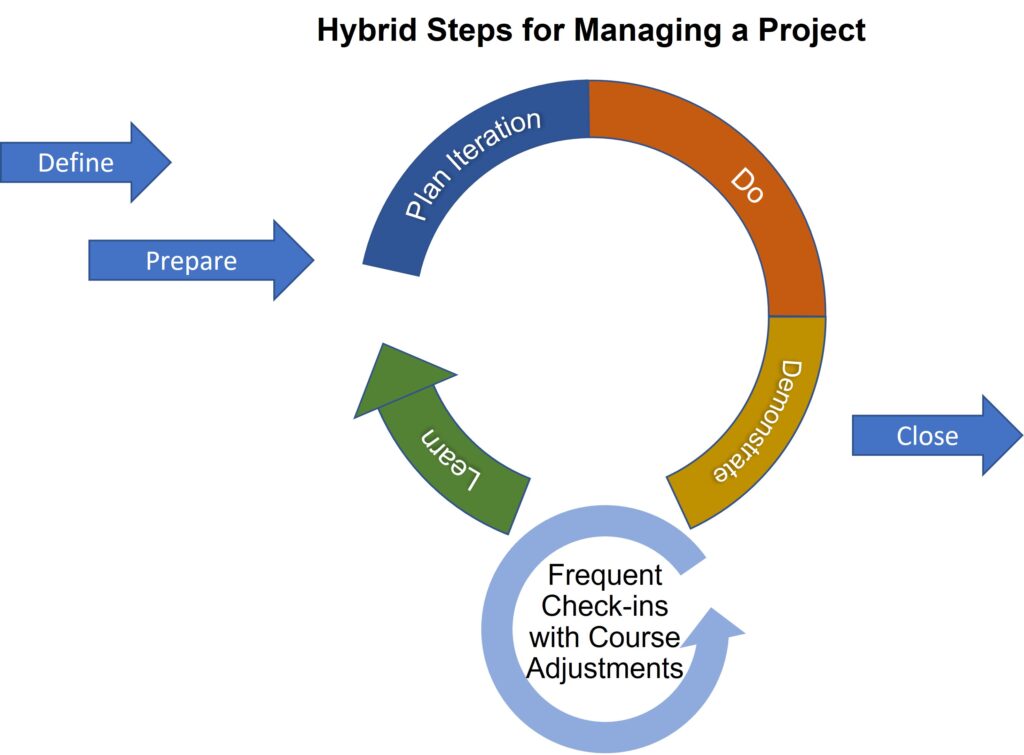I recently attended a project and portfolio management conference, where I noticed that a long-standing conflict in project management is starting to move in a new direction. For decades there have been two very different approaches to managing projects. One approach, let’s call it predictive, emphasizes the value of early, detailed planning and predictable delivery. The other approach puts a premium on adaptability, iteration, and fast learning. Let’s call that one adaptive. (For example, Scrum is an adaptive methodology.)
I’ve always believed that both approaches contain valuable techniques and insights. You know – select the right tool for the problem. Unfortunately, many project-based organizations have felt compelled to pick sides. The hostility was palpable at times. But now there is a growing consensus that a pragmatic third way is a good fit for many. This third way does not have a universal name yet, but some of us call it hybrid.
Hybrid is a mashup of both predictive and adaptive. For example, here’s what the project lifecycle (the standard set of phases to manage a project) looks like when combined. It combines appropriate upfront planning with the responsiveness of iteration. (If you’ve been around project management for a long time, you may hear echos of rolling wave planning.) What do you think?

